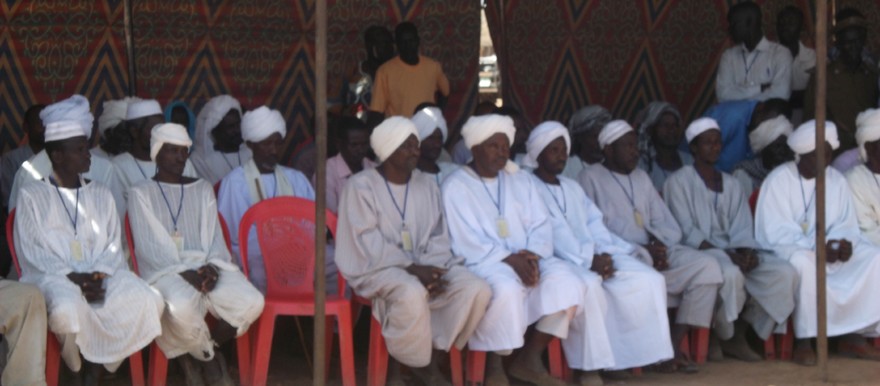Rizeigat and Dinka Malual tribal chiefs have concluded a three-day conference in the Bahr el Ghazal region, where they agreed on 18 resolutions for ensuring a peaceful migration season.
The Rizeigat, an Arab tribe that bring their cattle seasonally into Dinka territory from their homeland in eastern Darfur, sent 40 delegates to the event in Gok Machar, Aweil North County. Dinka Malual chiefs attended in like number, with 50 reported in attendance along with officials from the Northern Bahr el Ghazal State government.
Among the resolutions passed by the conference are that the Rizeigat shall come to South Sudan unarmed, and that the two tribes shall establish a joint court based at the border to handle dispute cases and reported crimes.
The conference was also significant in setting migration routes. It was agreed that the Rizeigat shall came into the state by five different routes including Rumaker, Kiir-Adem, Achana, and Janj, while informing the chief based at each place. Each year the migration season shall be limited between January and May. No places shall be named by the herders, and no trees shall be cut down, and no wild animals shall be killed, and no children shall be abducted.
According to Michael Angui Diing, head of the Dinka Malual peace committee, the signed resolutions will allow “free movement among the two communities and it will promote coexistence when it is implemented.” He expressed some concern, however, that the membership of the Rizeigat peace committee keeps changing from conference to conference.
Governor Paul Malong, who opened the event, called it “a great day” and warned against warmongering. “Some people must be wondering why we are talking about peace while others are talking about war? For reasons I know this country is lacking a culture of peace and there are people who love living in a war environment so they can take what they do not own. For me, I can live in war or in peace. Some people do not like to be corrected – this is our nature as humans,” he said.
The head of the Rizeigat peace committee, Mohamed Ali Al Gorashi, said that “the outcomes of this conference were very important to us.”
“We must implement them accordingly,” said the Arab leader, “even if the Sudan government may not be happy and that must not affect us – the major problem is to get our cattle grazing pasture since we used to spend eight months in South Sudan with our cattle and 4 months in Sudan.”
Bashir Adam Abaker Saleh, another Rizeigat chief, said: “I thank the government of South Sudan, my brother the governor, and the government delegation for bringing us peace, and my special thanks to our brother Mohamed Ali Gorashi because he endangered himself [by coming here] and came to us the Rizeigat in our home and offered us peace and we accepted his offer to implement peace among us, which is what we really wanted and need. Thank God for bringing us together from all our places at the border of South Sudan.”
“We the Rizeigat and Dinka Malual we are one, and today we know we are inseparable and we have always wanted peace to come to us through South Sudan and now that it’s here thank God and we all the Rizeigat chiefs are very happy for this achievement,” he added.
Meanwhile, Dinka Malual head chief Santino Deng said, “We shall not gain benefits from killing our children. If there were a benefit, I think the former chiefs Musa Madibo and Dau could have not made peace that time. Let us make a good and strong peace without cheating ourselves, because it very important for somebody to live, not to die.”
The three-day conference was funded by the US foreign aid agency through a contracted partner. At a similar conference in late February, Dinka Malual chiefs agreed to grant grazing access in other parts of the state to the Misseriya, a tribe that clashed repeatedly with the Rizeigat on the Darfur-Kordofan frontier earlier this year.
Reporting by Radio Tamazuj.




